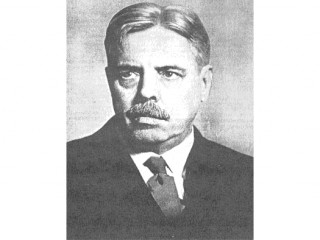
Edward Lee Thorndike biography
Date of birth : 1874-08-31
Date of death : 1949-08-09
Birthplace : Williamsburg, Massachusetts
Nationality : American
Category : Science and Technology
Last modified : 2011-03-14
Credited as : Scientist and psychologist, The Elements of Psychology, The Human Nature Club
The American psychologist and educator Edward Lee Thorndike was the originator of modern educational psychology and influenced 20th-century American education immeasurably.
Edward Lee Thorndike was born on Aug. 31, 1874, in Williamsburg, Mass., a minister's son. Before he entered Wesleyan University in 1891, his family had moved eight times within New England. Although this experience caused him to become self-reliant, it also left him reserved and shy; the lonely boy grew into a man happiest when alone with his work.
Thorndike was inspired by the psychological writings of William James, and after graduation from Wesleyan, Thorndike entered Harvard University to study under James. James let Thorndike perform learning experiments with animals in his own basement. Thorndike continued these experiments at Columbia University and published his results as Animal Intelligence (1898), his doctoral thesis. Thus, he reported the first carefully controlled experiments in comparative animal psychology. To study animal behavior scientifically, Thorndike invented the problem box and maze, techniques later adopted by other psychologists.
While teaching psychology to prospective teachers at Western Reserve University, Thorndike was attracted to human learning and to psychology's potential usefulness to education. He transferred to Teachers College, Columbia University, in 1899, where he introduced courses in educational psychology, tests and measurements, and the psychology of school subjects. In 1921 he became director of Teachers College's new Institute of Educational Research; he retired in 1940. He died on Aug. 9, 1949, in Montrose, N.Y.
Many of Thorndike's writings, including Notes on Child Study (1901), Principles of Teaching (1906), Education: A First Book (1912), and The Psychology of Arithmetic (1922), dealt with both practical school problems and issues underlying education. Thus, he investigated and wrote about the probable causes of differences in intellectual abilities, how habits are formed, the positive effects of practice, learning by rewards, the value of studying one subject for learning another, the arrangement of skills, and the effects upon students of tiredness and time of day.
Thorndike's belief in applied psychology prompted the Thorndike Arithmetics (1917), Thorndike-Century Junior and Senior Dictionaries (1935, 1941), and The Teacher's Word Books (1921, 1931). To satisfy education's desires for precise measures of students' aptitudes and achievements, Thorndike constructed numerous scales and tests. Beginning with scales rating handwriting (1910), English composition (1911), and drawing (1913), personnel selection tests for business, and psychological scaling for the U.S. Army during World War I, Thorndike next authored intelligence tests, college admissions tests, and an examination for law school students.
As a scientist, Thorndike sought to develop a cohesive theory of human behavior. He elaborated his stimulus-response psychology in such works as The Human Nature Club (1900), The Elements of Psychology (1905), The Fundamentals of Learning (1932), Human Nature and the Social Order (1940), and, especially, his three-volume classic, Educational Psychology (1913, 1914).
















